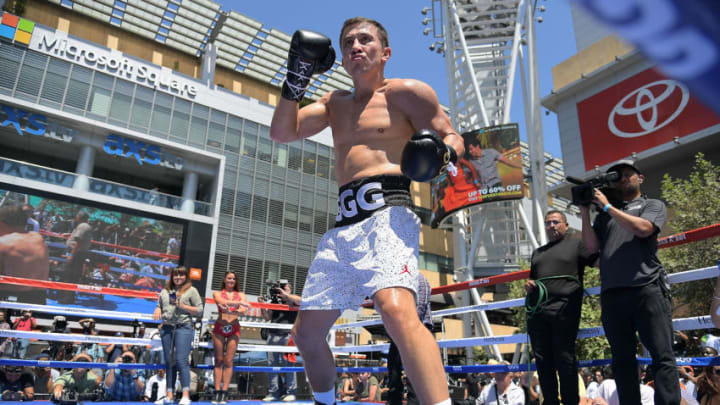20 little-known facts about Gennady Golovkin

20. Golovkin’s amateur record is often listed at 345-5
Although Gennady Golovkin’s amateur career seems like a distant memory at this point, it’s worth remembering that he was one of the best boxers in the world before he started punching for pay. At least one source indicates that Golovkin suffered eight losses as an amateur, but that amounts to splitting hairs. Golovkin fought often and all over the world in major tournaments.
Of course, most boxing fans are aware that Golovkin won a silver medal at the 2004 Olympic Games in Athens, Greece, but that only scratches the surface of his amateur accomplishments. As a teenager, Golovkin snagged gold at the 2000 World Junior Championships, defeating Cuba’s Maikel Perez in the finals. A triumph at the 2001 East Asian Games would follow, as Golovkin consistently dominated continental circuits.
While the Olympic loss can be viewed as a disappointment, Golovkin did win the 2003 World Amateur Championships, besting a slew of fighters who developed into elite pros: contender Matvey Korobov, former WBO middleweight champion Andy Lee and long-reigning IBF 168-pound boss Lucian Bute. Based on this result, Golovkin would have been considered the favorite to win Olympic gold in 2004.
Interestingly, Golovkin’s participation in major tournaments as an amateur ended via stunning upset when he lost to Egypt’s Mohamed Hikal in the second round at the 2005 World Amateur Championships; by mid 2006, Golovkin had turned pro. What’s particularly remarkable about Golovkin’s amateur career is considering the extent of his success in an era where single, slapping punches counted for points. That Golovkin, a thudding body puncher, could seamlessly adapt from this antiquated system to professional prizefighting is a testament to his skill-set.